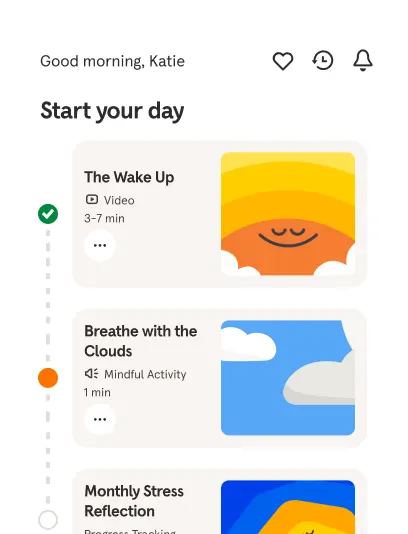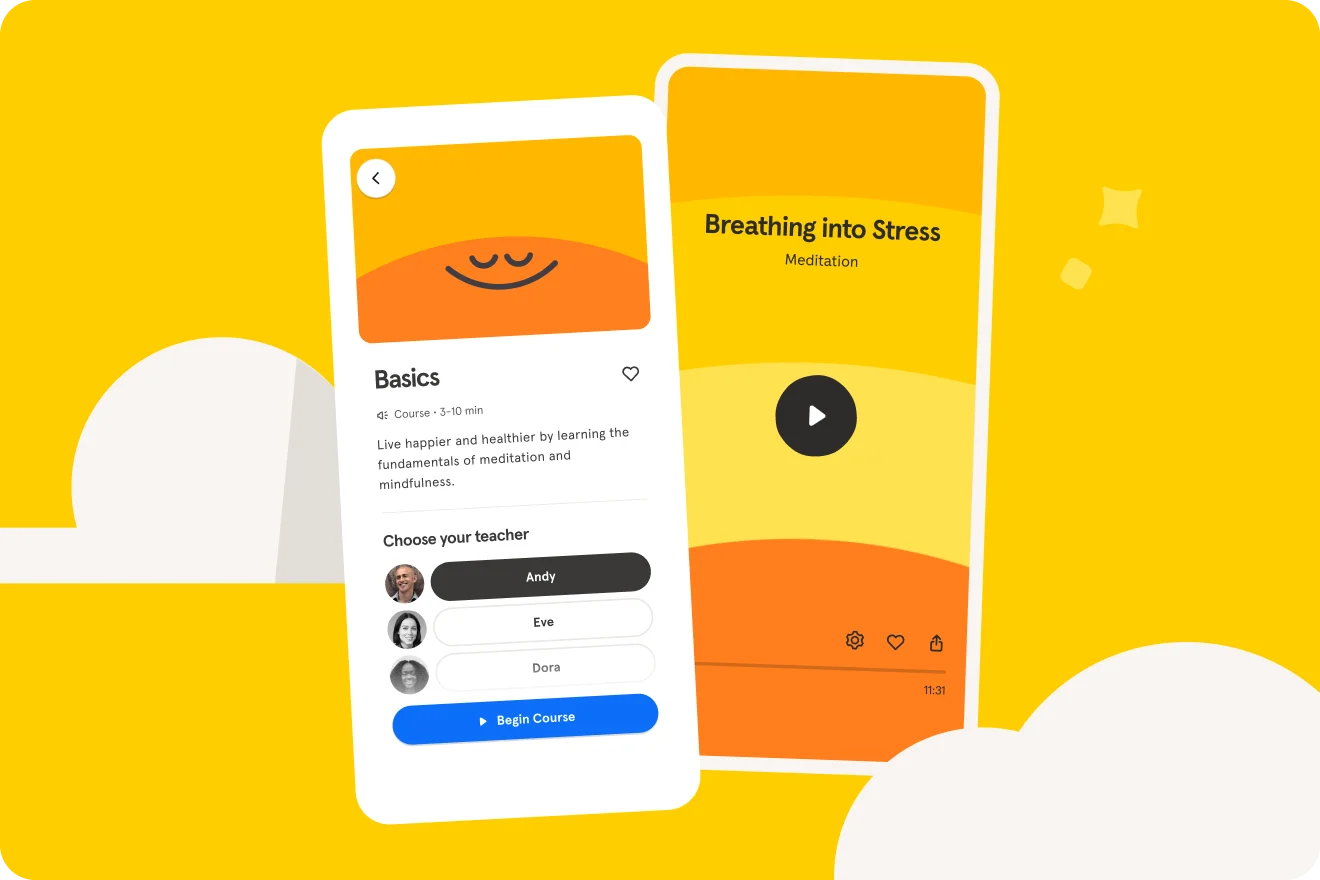Should We Try to Multitask?
Kessonga breaks down the reasons why multitasking isn't all that it's cracked up to be.
Try 14 days freeBetter mental health starts with Headspace. Unrivaled expertise to make life feel a little easier, using guided meditations, mindfulness tips, focus tools, sleep support, and dedicated programs.
Try 14 days free
(mouse clicking) (soft music) Headspace Studios. (gentle music) (birds chirping) Hey there, I'm Kessonga, and welcome back to Radio Headspace. It's a wonderful Tuesday. This week, I'm answering some listener questions about mindfulness, meditation, or just life in general. Today's inquiry is about multitasking. It goes like this. "Hi, Kessonga. I truly believe I have mastered multitasking. I even learned how to do it during my meditation practice. What do you think? And do you have any tips in general about multitasking?" So my first tip about multitasking is to simply rethink it. A teacher of mine put it quite simply. "Multitasking is one of the biggest myths in existence." I remember asking what she meant by this, because at the time I thought of myself as a pretty efficient multitasker, but what she said next really made sense. "It's not so much that you're doing more than one thing at once, because essentially we can only do one thing at a time. What we're really doing is thinking that we're doing more than one thing at the same time, and as a result, what we may actually be causing is mental clutter." This makes me think about something called the three B's. In the book, "Mindfulness-Based Cognitive Therapy for Depression", mindfulness experts Zindel V. Segal, Mark Williams, and John Teasdale, they explain a bit about the three B's, the busy mind, the background mind, and the being mind. And I'm totally paraphrasing here, but let's get into what this all means. So the busy mind is sometimes referred to as the monkey mind. That's something I'm sure we've all experienced before. It's always looking for something to think about. For example, it worries over the future and the past. It makes lists. It fantasizes. And creates imaginary conversations like, "If I say this, then the person I'm talking to will say that." It's goal-oriented. And multi-tasking falls under this busy or monkey mind category. The background mind refers to the aspect of the mind that's in the background, working at evaluating experiences, judging oneself or others, and checking to see how one's current situation is compared to the idea of how they would like it to be. The busy and the background mind together is referred to as the doing mind, which simply means everything that I mentioned is happening in your brain while you're doing something. Your mind is on overload while you're performing a task. And then you have the being mind. The being mind is categorized by open awareness of the constantly changing flow of moment to moment experiences. There's an interest in and an allowing of what is rather than a measuring and pressure to change what is. And if this sounds familiar, that's because we tap into our so-called being mind when we practice mindfulness. We are aware and just being in the present moment. And I humbly believe that completing tasks well has to do with the energy that you're bringing to them. So when...
Details
About your teachers
- More about Andy
A former Buddhist monk, Andy has guided people in meditation and mindfulness for 20 years. In his mission to make these practices accessible to all, he co-created the Headspace app in 2010.
- More about Eve
Eve is a mindfulness teacher, overseeing Headspace’s meditation curriculum. She is passionate about sharing meditation to help others feel less stressed and experience more compassion in their lives.
- More about Dora
As a meditation teacher, Dora encourages others to live, breathe, and be with the fullness of their experiences. She loves meditation’s power to create community and bring clarity to people’s minds.
- More about Kessonga
Kessonga has been an acupuncturists, therapist, and meditation teacher, working to bring mindfulness to the diverse populations of the world.
- More about Rosie
Rosie Acosta has studied yoga and mindfulness for more than 20 years and taught for over a decade. Rosie’s mission is to help others overcome adversity and experience radical love.

Your lifelong guide to better mental health
Stress, sleep, and all the challenging emotions — care for your mind with the everyday mental health app that's shown to make a difference.
Try 14 days free
Look after your mind
Proven guided meditations and programs to help you stress less, sleep more soundly, and better navigate life’s challenges

Science-backed
Studies show that using Headspace for 30 days can reduce stress, increase resilience, and improve overall well-being

Explore 1000+ expert-led exercises
Access our library of meditations, breathing exercises, and guidance videos for stress, sleep, focus, everyday anxiety , parenting, and more.
Member reviews
Hear from some of our members
Your app brings so much peace and tolerance to our home.
Rachel
UK
Changing my thoughts has allowed me to change my life.
Davide
London
The stress and loneliness courses … taught me how to comfort myself.
Alicia
Canada
Headspace provides me with … a connection to myself, and a disconnection from negative thoughts, feelings, and sensations.
Keri
UK
Related to 'Should We Try To'
- © 2024 Headspace Inc.
- Terms & conditions
- Privacy policy
- Consumer Health Data
- Your privacy choices
- CA Privacy Notice

